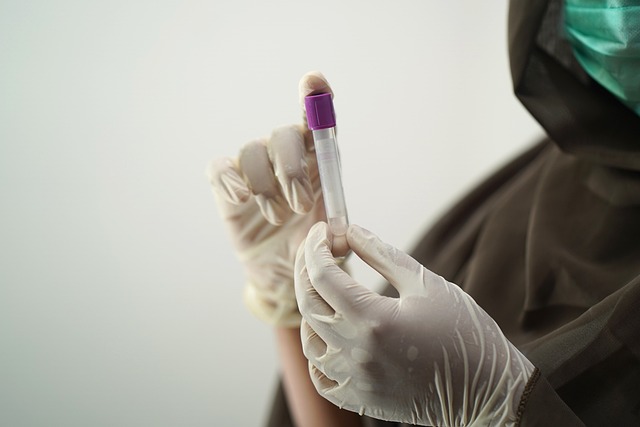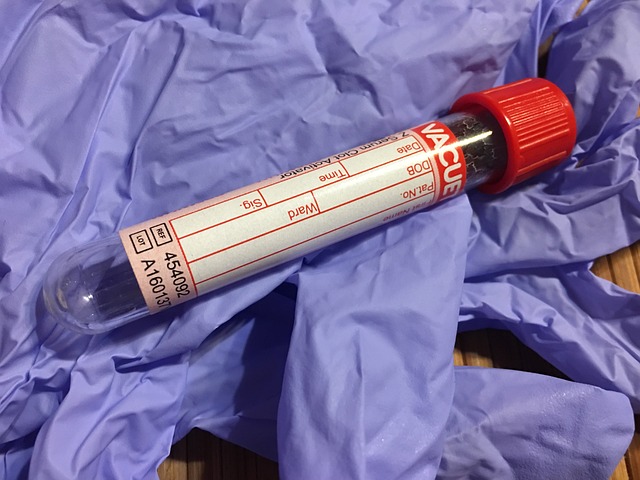Testosterone levels significantly impact kidney health, a crucial aspect of overall wellbeing that extends beyond its role in sexual function and muscle mass. In the UK, optimizing testosterone is essential for maintaining efficient renal function as it influences blood flow and waste excretion. Hypogonadism, characterized by low testosterone, can increase the risk of chronic kidney disease, while hyperfiltration, a common early kidney issue, can also harm renal function. Regular Testosterone Blood Tests UK are pivotal for detecting imbalances early and guiding interventions. These tests are accessible through the NHS with GP referrals or via private healthcare services for quicker access. They provide vital information on hormonal and renal status, enabling personalized healthcare plans. For accurate diagnosis and treatment, it's important to discuss test results with a healthcare provider, considering the UK-specific reference ranges from NEQAS or BASHH. Additionally, eGFR tests are recommended for monitoring kidney function in relation to testosterone levels, ensuring comprehensive management of hormonal balance and renal health within the UK's healthcare system.
navigating the complexities of health monitoring, particularly concerning kidney function, has become more accessible for patients in the UK. This article delves into the critical role of testosterone in overall health and its direct influence on renal performance. We explore the availability of testosterone blood tests within the UK’s healthcare system, offering a guide to understanding and interpreting these results. By equipping readers with this knowledge, they can effectively monitor their kidney health, ensuring early detection and management of any potential issues related to hormonal balance. Understanding “Testosterone Blood Test UK” and its significance is key to maintaining optimal health.
- Understanding the Role of Testosterone in Health and Its Impact on Kidney Function
- Comprehensive Guide to Testosterone Blood Test Availability in the UK for Patients
- How to Interpret Testosterone Blood Test Results and Monitor Kidney Health in the UK Context
Understanding the Role of Testosterone in Health and Its Impact on Kidney Function

The role of testosterone, a primary male sex hormone also pivotal for women’s health, extends beyond sexual function and muscle mass to encompass a broad impact on overall wellbeing, including kidney health. In UK patients, maintaining optimal testosterone levels is crucial for the efficient functioning of the kidneys. Testosterone plays a regulatory role in renal function by influencing blood flow and the excretion of waste products. When testosterone levels are imbalanced, it can lead to a cascade of health issues, potentially affecting kidney function. For instance, hypogonadism, a condition characterised by insufficient testosterone production, has been associated with an increased risk of chronic kidney disease. Conversely, hyperfiltration, a common complication in early-stage kidney disease, can lead to declining renal function if left untreated. Thus, regular monitoring through Testosterone Blood Tests UK is essential for early detection and management of any discrepancies that may impact kidney health, ensuring a comprehensive approach to maintaining bodily homeostasis. These tests are readily available in the UK’s healthcare system and provide valuable insights into an individual’s hormonal and renal status, facilitating timely interventions when necessary.
Comprehensive Guide to Testosterone Blood Test Availability in the UK for Patients

Patients in the UK seeking to undergo a testosterone blood test, a key diagnostic tool for assessing hormonal health, have several accessible options. The National Health Service (NHS) provides this service as part of its endocrine evaluations, with general practitioners (GPs) being the primary point of access for NHS-funded tests. To initiate the process, patients must first consult with their GP to discuss symptoms or concerns related to hormone imbalances. Once a referral is made to a specialist or a hospital endocrinology department, the testosterone blood test can be scheduled accordingly. It’s important for individuals to understand that while the NHS offers this service, wait times may vary depending on regional demand and local healthcare priorities.
For those seeking quicker access or additional convenience, private healthcare providers in the UK also offer testosterone blood tests. These services often provide faster appointment availability and comprehensive results. Private clinics, specialized laboratories, and online health platforms are among the options available to patients. Many of these services offer a streamlined process where blood samples can be collected from local pharmacies or home visit services, facilitating a more patient-centric approach to healthcare. When opting for private testing, it is advisable for patients to discuss the results with their GP or a specialist to ensure proper interpretation and management of any findings. Whether through public or private avenues, testosterone blood tests in the UK are crucial for diagnosing and managing conditions such as hypogonadism, ensuring that patients receive the appropriate treatment and care for their hormonal health needs.
How to Interpret Testosterone Blood Test Results and Monitor Kidney Health in the UK Context

In the UK, monitoring kidney health is a critical aspect of maintaining overall well-being, and one component of this oversight involves interpreting testosterone blood test results. Testosterone levels in men are indicative of various bodily functions, including muscle mass, bone density, and sexual health. A testosterone blood test, commonly conducted as a serum testosterone measurement, provides insights into an individual’s hormonal balance. The normal range for total testosterone in males is typically between 8 to 32 nanomoles per litre (nmol/L), though this can vary. When interpreting these results within the UK context, it is important to consider the reference ranges provided by the National External Quality Assessment Scheme (NEQAS) or the British Association of Sexual Health and HIV (BASHH). These guidelines ensure standardisation across healthcare settings, facilitating accurate comparisons.
For patients undergoing testosterone blood tests in the UK, it is essential to discuss results with a healthcare provider who can interpret them within the broader context of the patient’s overall health and kidney function. The kidneys play a vital role in regulating hormone levels by producing and secreting hormones like erythropoietin, which influences red blood cell production, and by filtering waste products from the blood. A decline in kidney function can lead to an imbalance of hormonal levels, including testosterone. Therefore, monitoring kidney health is integral when assessing testosterone levels. Regular tests, such as estimated glomerular filtration rate (eGFR) measurements, help track kidney function over time. Patients in the UK can access these tests through the NHS or private healthcare services, ensuring they maintain both hormonal balance and kidney health effectively.
In conclusion, managing kidney health is a critical aspect of overall well-being, and for UK patients, understanding and monitoring testosterone levels through a Testosterone Blood Test UK is an invaluable tool. This article has delved into the significance of testosterone in health and its connection to renal function, provided a detailed guide on the availability and accessibility of these tests within the UK, and elucidated how to interpret the results to effectively monitor kidney health. For those concerned about their kidney function or hormonal balance, staying informed and proactive through regular testing can lead to early detection and management of potential issues. It is clear that testosterone blood testing plays a pivotal role in maintaining health, particularly when it comes to kidney function for UK patients. With the guidance offered here, individuals can now take charge of their health with confidence, supported by the comprehensive resources available online.
